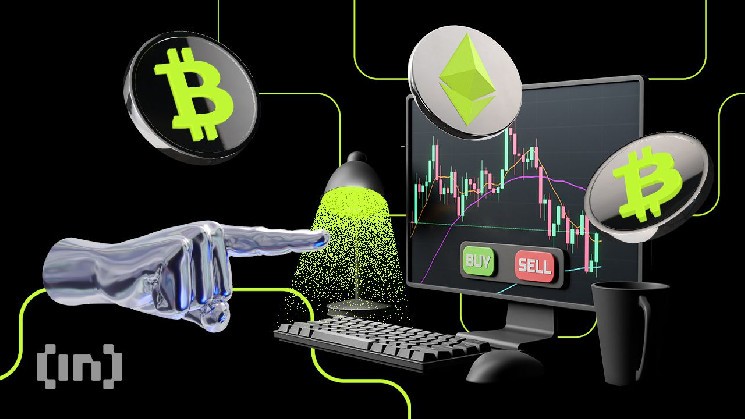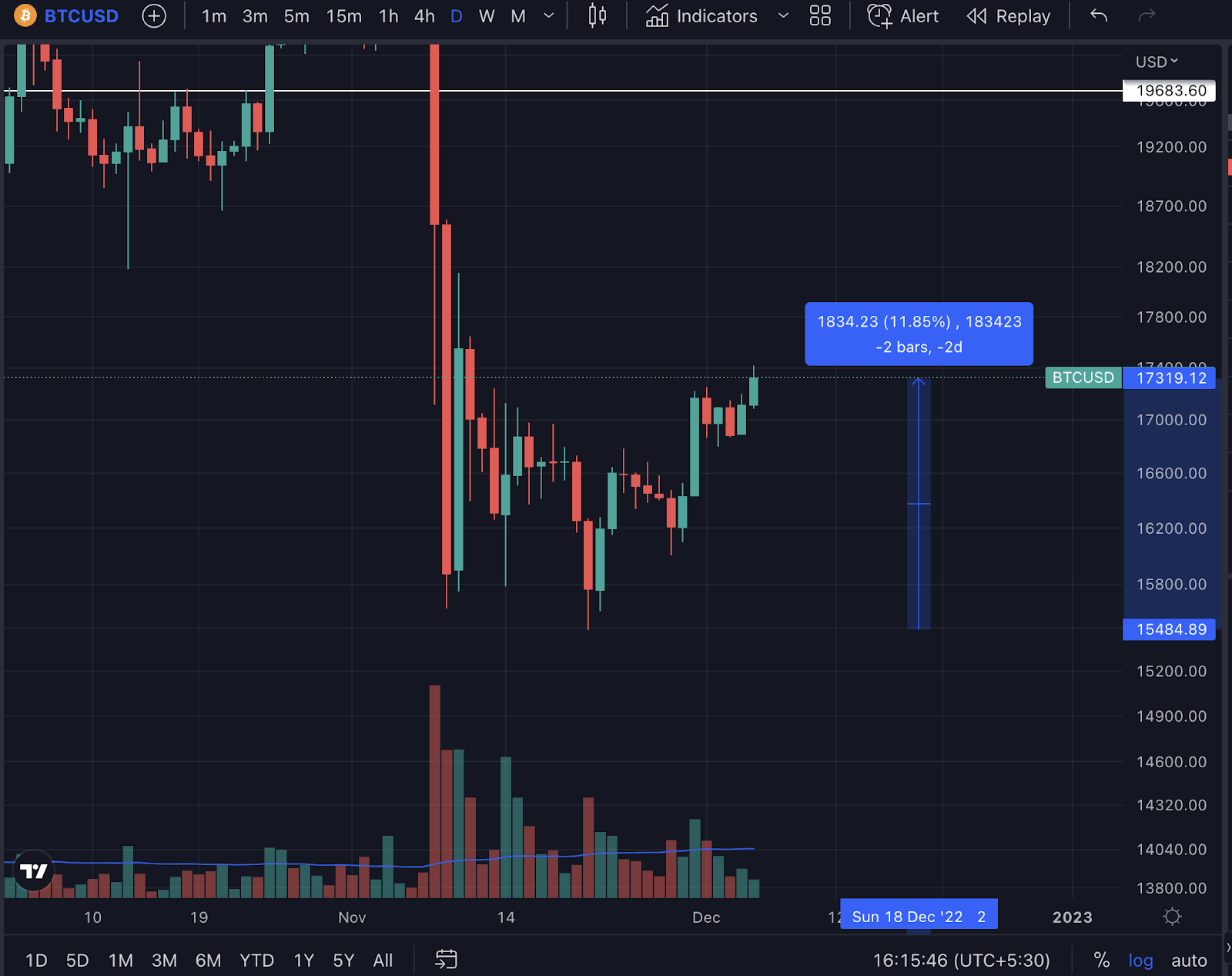Exit Liquidity? Cryptos Pump While Gemini and Genesis Remain in Deep Waters

The crypto market has been pumping for the last two weeks, but the risks associated from Genesis and Gemini halting withdrawals remains. Is the pump exit liquidity for whales?
Bitcoin, the leading crypto, is up by nearly 12% in the last two weeks. The price is trading at $17,300. It bottomed around $15,500 and has been in an uptrend since then. At the same time, Ethereum has rallied over 20% in the last two weeks.

Source: TradingView BTC/USD, BITSTAMP
Due to these rallies, some believe that the bottom is already in, while others think that crypto still faces trouble ahead.
Genesis in Deep Waters
The FTX collapse severely impacted broker Genesis and Gemini Earn. Genesis got into a liquidity crunch with the collapse of FTX, and hence had to halt withdraws. The balance sheet was already bleeding following the default of Three Arrow Capitals.
According to a Bloomberg report, Genesis has around $2.8 billion in outstanding loans on its balance sheet. The third of this loan is reportedly made to related entities, including the parent company Digital Currency Group (DCG).
DCG also owns one of the largest Bitcoin funds, i.e., the Grayscale Bitcoin Fund (GBTC). The fund has nearly $11 billion in assets under management.
DCG owes $900 million to Gemini
Gemini had partnered with Genesis to provide yields to customers for its earn program. With Genesis halting withdrawals, Gemini earn, too, had to adopt the strict measure of pausing the withdrawals. Reportedly, crypto lender Genesis owes crypto exchange Gemini $900 million.
According to the Financial Times, Gemini has formed a creditors’ committee to recover the funds from Genesis and the parent company, DCG.
Crypto Portfolios to Fall by Another 50%?
With Genesis attempting to keep bankruptcy at bay, the situation might become a ticking time bomb for crypto. The community fears that any negative developments might result in DCG unwinding the GBTC resulting in the collapse of Bitcoin price. Twitter user says that they will not buy the exit liquidity. They expect the retail portfolio to be down by another 50%






 Bitcoin
Bitcoin  Ethereum
Ethereum  Tether
Tether  USDC
USDC  TRON
TRON  Dogecoin
Dogecoin  Cardano
Cardano  Monero
Monero  Bitcoin Cash
Bitcoin Cash  Chainlink
Chainlink  LEO Token
LEO Token  Stellar
Stellar  Zcash
Zcash  Litecoin
Litecoin  Hedera
Hedera  Dai
Dai  Cronos
Cronos  OKB
OKB  Tether Gold
Tether Gold  Ethereum Classic
Ethereum Classic  KuCoin
KuCoin  Cosmos Hub
Cosmos Hub  Gate
Gate  Dash
Dash  Algorand
Algorand  VeChain
VeChain  Stacks
Stacks  Tezos
Tezos  TrueUSD
TrueUSD  Decred
Decred  IOTA
IOTA  Theta Network
Theta Network  Basic Attention
Basic Attention  NEO
NEO  Synthetix
Synthetix  Qtum
Qtum  0x Protocol
0x Protocol  Ravencoin
Ravencoin  DigiByte
DigiByte  Zilliqa
Zilliqa  Nano
Nano  Holo
Holo  Siacoin
Siacoin  Numeraire
Numeraire  Waves
Waves  Ontology
Ontology  Status
Status  Enjin Coin
Enjin Coin  BUSD
BUSD  Hive
Hive  Pax Dollar
Pax Dollar  Lisk
Lisk  Steem
Steem  Huobi
Huobi  OMG Network
OMG Network  Bitcoin Gold
Bitcoin Gold  NEM
NEM  Augur
Augur